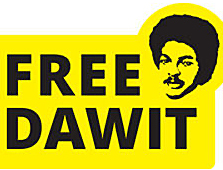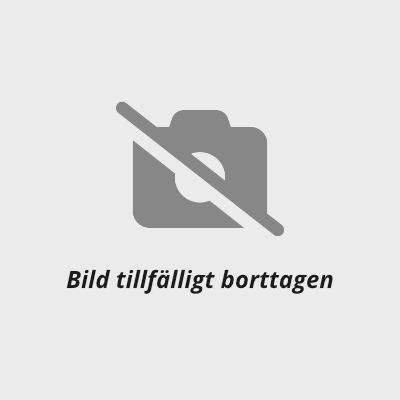Drug policies are too important to be left to drug experts and to governments alone. It is a society-wide responsibility that requires society-wide engagement. said Mr Sven-Olov Carlsson, international president, World Federation Against Drugs at the opening of conferens in Gothenburg.
Mr. Sven-Olov Carlsson, International President, World Federation Against Drugs Speech at the Inauguration of the 6th World Forum Against Drugs, Monday, 14 May 2018, Gothenburg, Sweden
Your Excellencies, Honored Guests, Prominent Speakers and Moderators, Distinguished Delegates and Friends,
Ten years ago, 2008, the first World Forum Against Drugs took place in Stockholm, Sweden.
One of our major goals with the Forum was to reach out to non-governmental organizations on all continents and invite their members to a world conference where they could share experiences and talk about a vision of a drug-free world.
The Forum was a success.
One of the outcomes of the first Forum was that The World Federation Against Drugs (WFAD) was established 2009 as a global non-governmental organization.
In 2010 World Federation Against Drugs organized the 2nd World Forum Against Drugs. Every second year thereafter we have organized World Forum Against Drugs 2012, 2014, 2016 and now 2018, the 6th World Forum Against Drugs here in Gothenburg take place.
I would like to thank Her Majesty Queen Silvia in particular for her willingness and support in being the patron for this 6th World Forum Against Drugs as well as the Forum’s we have organized before. Her Majesty’s support is very important and is highly valuated.
I would also like to extend our sincere thanks to the Swedish Government, Ministry of Health and the City of Gothenburg for their financial support to enable this Forum.
The World Federation Against Drugs (WFAD) is a global multilateral community of non-governmental organizations and individuals.
The aim of World Federation Against Drugs is to work for a drug-free world. The members of World Federation Against Drugs share a common concern that illicit drug use is undercutting traditional values and threatening the existence of stable families, communities, and government institutions throughout the world.
We have since 2009 built a global network of non-governmental organizations and individuals and today we have more than 200 member organizations from all over the world.
The members are different in size, areas of work, political priorities but they all support the vision of a society free from the non-medical use of narcotic drugs.
The work of the World Federation Against Drugs is built on the principles of universal fellowship and basic human and democratic rights. We believe that working for a drug-free World will promote peace and human development and dignity, democracy, tolerance, equality, freedom and justice.
WFAD supports and is guided by the 1961, 1971 and 1988 UN drug control conventions as well as the UNGASS outcome document from 2016.
WFAD regards the non-medicinal use of narcotic substances, including cannabis, as a severe public health problem that creates significant problems for individuals, families, communities, nations and the society at large.
Cannabis is an addictive and impairing drug that and can cause both physical and mental health problems. The discussion on cannabis should therefore be around how we can reduce the non-medical use of cannabis.
Instead of this public health approach, we see a worrying trend to move towards legalizing cannabis for non-medical or recreational purposes.
Legalizing cannabis will result in more cannabis use, an outcome not in line with the intentions of the conventions. Increased cannabis use will result in more people suffering from adverse health and mental problems from cannabis. Prevalence of cannabis use disorders will increase.
This is in part because legalization invites the creation of a commercial for-profit industry – Big Marijuana – that is incentivized to cultivate life-long cannabis users.
I have no doubt that Big Marijuana like that of Big Tobacco or Big Alcohol will find efficient distribution channels and marketing strategies to reach users of all ages of their addictive products.
Efficient distribution will increase availability of the drug, its social acceptability, and as a result, increase its use.
Although frequent cannabis users are in minority, they consume the majority of the cannabis used. The growing cannabis industry is dependent on frequent users to make high profits, and as a result will target the most vulnerable populations in their marketing.
An important statement that needs to be said at every meeting, and repeated over and over again while discussing the world drug problem is that the World’s poorest communities are the most vulnerable to the harms of drug use and trade.
Experience tells us that a balanced and restrictive drug policy limits the problem of drug abuse.
The key to success is to prevent the problem, the success of treatment is rather limited although treatment must be a part of a balanced policy.
The strength of the international drug control system is its universality.
But drug policies are too important to be left to drug experts and to governments alone. It is a society-wide responsibility that requires society-wide engagement.
- This means working with children, starting from parents and teachers, to ensure that they develop self-esteem.
- This means supporting family-based programmes because prevention begins at home.
- This means advocacy.
As non-governmental organizations we can play a crucial and a very important role in this matter.
The future of an improved drug policy is not to legalize intoxicating, abusable drugs, including cannabis.
It is in the development of a balanced, restrictive drug policy that prevents drug use, and that intervenes with drugs users to provide them with a path to life-long recovery.
Instead of legalizing drugs, an enlightened drug policy can harness the criminal justice system to thwart drug markets, facilitate entry into treatment and restrict incarceration to egregious offenders.
The criminal law against illegal drug use is a major public health strategy to reduce drug abuse and the many health, safety and productivity losses imposed by drug abuse.
These are the elements of a successful drug policy. This drug policy makes clear that drug use is unacceptable.
Thank you for your attention!




